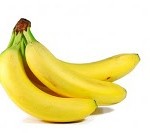 Based on research conducted in recent years, zinc has antibiotic properties that can effectively deal with the bacteria that cause acne. The good thing is that the use of zinc supplementation does not include any unwanted side effects associated with antibiotics.
Based on research conducted in recent years, zinc has antibiotic properties that can effectively deal with the bacteria that cause acne. The good thing is that the use of zinc supplementation does not include any unwanted side effects associated with antibiotics.
So, how does zinc work to manage acne?
What you should know is that acne is a skin problem is actually more than skin deep, and if you want to cure acne permanently, must do so by dealing with the main reason behind the acne: a severe lack of vitamins for the production of healthy skin from oil to protect against bacteria.
How important is zinc in the body? Zinc is necessary for the production of healthy skin cells as your body produces skin cells literally on a daily basis.
Over all age groups, it was found that the diet of most people in the United States is remarkably short of zinc, and for adolescents, this particular lack of zinc contributes to outbreaks of severe acne.
Only the amount of Zinc for acne?
Some studies have found that supplementing your current diet with no less than sixty milligrams of zinc every day works wonders for the management of acne. Several experiments indicate that the use of dietary zinc supplementation only lead to a 60% improvement in acne condition. On the other hand, the use of zinc along with vitamin A to treat acne contributes to 80% improvement in acne condition. Although zinc is not essential co-factor for vitamin A (vitamin B), zinc helps the body absorb vitamin A.
Zinc as an acne treatment
Zinc acne remedy can be effective; however, certain chemicals, vitamin supplements and some foods should be avoided because they hinder the body’s ability to absorb this particular nutrient.
The following are inhibitors of various types of zinc acne treatment:
Grains
Every time you are taking zinc supplements, eat fewer grains such as rice and wheat. Phytic acid in grains is effective in reducing the absorption of zinc by 15%. If you have severe acne and are based dietary supplements of zinc, eat only one or two servings of grains per day.
Soy Protein
Soy protein has a tendency to bind to minerals and can inhibit, and, consequently, lower absorption of zinc.
Other Minerals
Several other inorganic minerals such as iron and copper may also hinder the bioavailability of zinc. If you are taking copper supplements, consume no more than 2 to 3 mg of copper per day. In addition, nutritional supplements only organic and natural iron.



